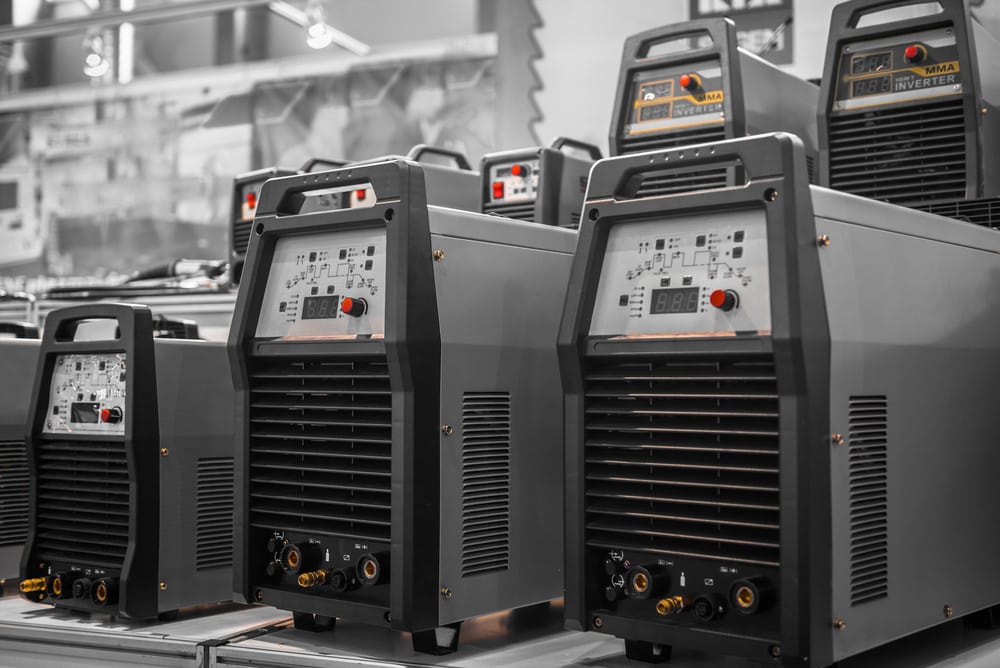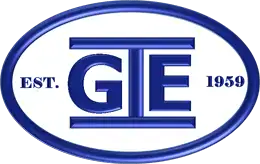Inverters
Request a QuoteInverters play a critical role in equipment sustainability and energy cost-savings for commercial and industrial applications. They are an essential part of electrical systems because you can easily adjust the frequency of the voltage supplied to your motors. This is extremely important when demand changes and you need a reliable system to help regulate needed adjustments.

Inverters Control AC Power Frequency and Voltage
An inverter can freely adjust and modify the speed and torque of an electric motor.
They convert input AC power to DC power and then create AC power from the converted DC power using pulse width modulation (PWM) control.
It enables them to emit a pulsed voltage that is smoothed by the motor coil so that a sine wave current travels to the motor, allowing the motor inverter to control the speed and torque.
Control Modes of Inverters
- V/f Control. V/f control is a method of motor control in which the voltage and frequency are proportional. It is also called the V/f characteristics. The motor speed is directly proportional to the applied voltage and frequency.
- Vector Control. Vector control, also known as field-oriented control (FOC), is a control mode for variable-frequency drives (VFDs). A three-phase AC electric motor’s stator currents are identified as two orthogonal components displayed as a vector.
One component is directly proportional to torque, while the other is proportional to flux. Torque and change are measured in motor windings and used by the motor controller to produce the correct motor torque and flux.
- Sensorless Vector Control. Sensorless vector control is a variation of vector control that does not require feedback from an encoder. The inverter uses the motor’s current and voltage output to correct the waveform. It results in finer speed control.
- Vector Control with Encoder Feedback. Vector control with encoder feedback is a vector control variation that uses an encoder’s feedback. The encoder adjusts the output waveform and improves speed control.
Best Inverter Control Mode
The best inverter control mode for your application depends on several factors, including:
- The type of motor you are using
- The speed control range you need
- The level of precision you require
- The amount of torque you need
- If you need the ability to reverse the motor’s direction
Benefits of Inverters
- Energy-saving. An inverter AC motor drive is a key technology for reducing energy consumption in fan and pump applications. Inverter drives can reduce energy consumption by 20 to 50 percent compared to traditional on/off control or damper control methods by controlling motor rotation.
- Precision speed control. Inverters can precisely control motor speed, making them ideal for applications that require slow speeds or frequent starts and stops.
- Smooth acceleration and deceleration. An inverter motor drive can ramp up or down the speed of the motor smoothly and gradually, which is critical for applications such as escalators and conveyor belts to avoid dropouts of loads.
- Improved process control. Because inverter drives can precisely control motor speed, they can also improve process control in packaging and materials handling applications.
- Longer motor life. Inverter drives can extend the life of motors by reducing mechanical stress on the engine and bearings.
- Reduced maintenance costs. The extended motor life and improved process control of inverter drives can lead to reduced maintenance costs.
- Operator comfort. Inverter drives can help reduce noise and vibration in applications such as fans and pumps, which improves operator comfort.
Efficient and precise way to control your motor
Gainesville Industrial Electric Co has the perfect solution for you if you’re looking for a more efficient and precise way to control your motor. From energy-saving vector control to sensorless vector control.
We have various options to choose from that will perfectly suit your needs. Contact us today to learn more! We’ll be happy to answer any questions you have and help you find the perfect inverter for your business.
